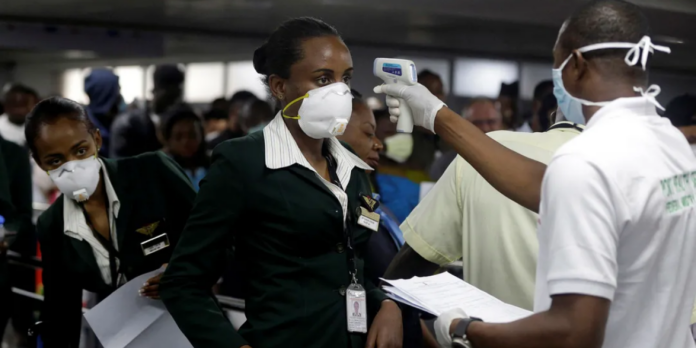In a troubling turn of events, China is grappling with a new respiratory virus, human metapneumovirus (HMPV), which has set off alarms around the world. As hospitals in several regions are reported to be overwhelmed, the fear of a COVID-19-like crisis is rising, especially as many recall the devastating effects of the 2020 pandemic.
According to multiple reports, health officials in China have confirmed a significant uptick in cases of HMPV, a virus that affects the respiratory system. Though similar viruses, such as the rhinovirus, have also contributed to the surge, it is HMPV that is raising the most concern. Video footage shared on social media platforms has shown packed hospitals and health facilities on the brink of collapse, with scenes eerily reminiscent of the early days of COVID-19.
The outbreak has sparked global trepidation, with many fearing that the world could face another prolonged lockdown similar to the one seen during the COVID-19 pandemic. The 2020 crisis, which led to widespread shutdowns, economic turmoil, and millions of deaths, is still fresh in the minds of citizens and health experts alike.
Reports from within China indicate that the virus is spreading quickly, particularly in the northern provinces. This coincides with the winter season, when respiratory diseases tend to spike. As of now, health authorities have not declared a state of emergency, but they have acknowledged that the situation is being closely monitored.
HMPV is not a new virus; however, it has not been as prominently discussed until now. The virus is particularly dangerous to children, the elderly, and individuals with weakened immune systems. According to health experts, these groups are most at risk of severe complications, including pneumonia and bronchitis.
“Human metapneumovirus is a respiratory infection that can cause significant problems, especially for young children and the elderly,” said Dr. Ling Zhang, an infectious disease expert in Beijing. “While it is not as deadly as COVID-19, its rapid spread and the strain it places on healthcare systems are causes for concern.”
In an official statement, the World Health Organization (WHO) emphasized that while the situation in China is being monitored, there is currently no need for a global emergency declaration. “The spread of HMPV in China is concerning, but at this stage, we are continuing to monitor the situation closely,” stated Dr. Tedros Adhanom Ghebreyesus, the WHO’s Director-General.
Despite this reassured tone from global health leaders, the local population and healthcare workers are feeling the pressure. Hospitals in major cities are reportedly seeing a sharp increase in patients, many of whom are children and elderly people with compromised immune systems. Medical staff have been working long hours, with some facilities even setting up makeshift treatment areas to cope with the overflow.
The public’s fear of another pandemic is palpable. In a recent interview, Li Wei, a resident of Beijing, shared his anxiety about the growing numbers. “We’re already seeing the hospitals crowded again,” he said. “It feels like we’re back in 2020. People are afraid that the government might lock us down again.”
The Chinese government, which is already under immense pressure due to the economic fallout from past lockdowns, has been reluctant to impose harsh measures. Officials have insisted that the situation is under control, but many citizens are unconvinced, especially after witnessing the strain on the healthcare system.
“The government is saying everything is fine, but we see the reality with our own eyes,” said Mei Ling, a local teacher in Shanghai. “If this virus continues to spread at this rate, we might be looking at the same kind of lockdowns we saw before.”
International observers are also wary, with many watching closely to see whether China’s approach to the virus will prevent a widespread resurgence. If the situation worsens, it could have global implications, affecting trade, travel, and economic stability, much like the initial stages of the COVID-19 pandemic.
Health experts have noted that the winter season in China is a contributing factor to the virus’s rapid spread. Cold weather and crowded indoor spaces create the perfect environment for respiratory infections to thrive. This seasonal pattern is seen worldwide, as flu and other viral infections typically peak during the colder months.
“It’s no surprise that we’re seeing a rise in respiratory illnesses now,” said Dr. Yang Liu, a pulmonologist in Guangzhou. “Winter is always a time when respiratory viruses spread more easily. But the fact that this virus is affecting so many people so quickly is worrying.”
The timing of this outbreak has only heightened global fears. With the world still recovering from the COVID-19 pandemic, any new virus that shows rapid transmission potential is met with anxiety. Even as HMPV has not yet shown the same level of severity as COVID-19, the possibility of it mutating or spreading beyond China has sparked international concern.
As China works to contain the outbreak, health experts around the world are urging caution. They are emphasizing the importance of early detection, public health measures, and the continued monitoring of the situation. Governments in other countries, including the United States and the European Union, have been alerted to the potential risks posed by the virus and are preparing contingency plans.

